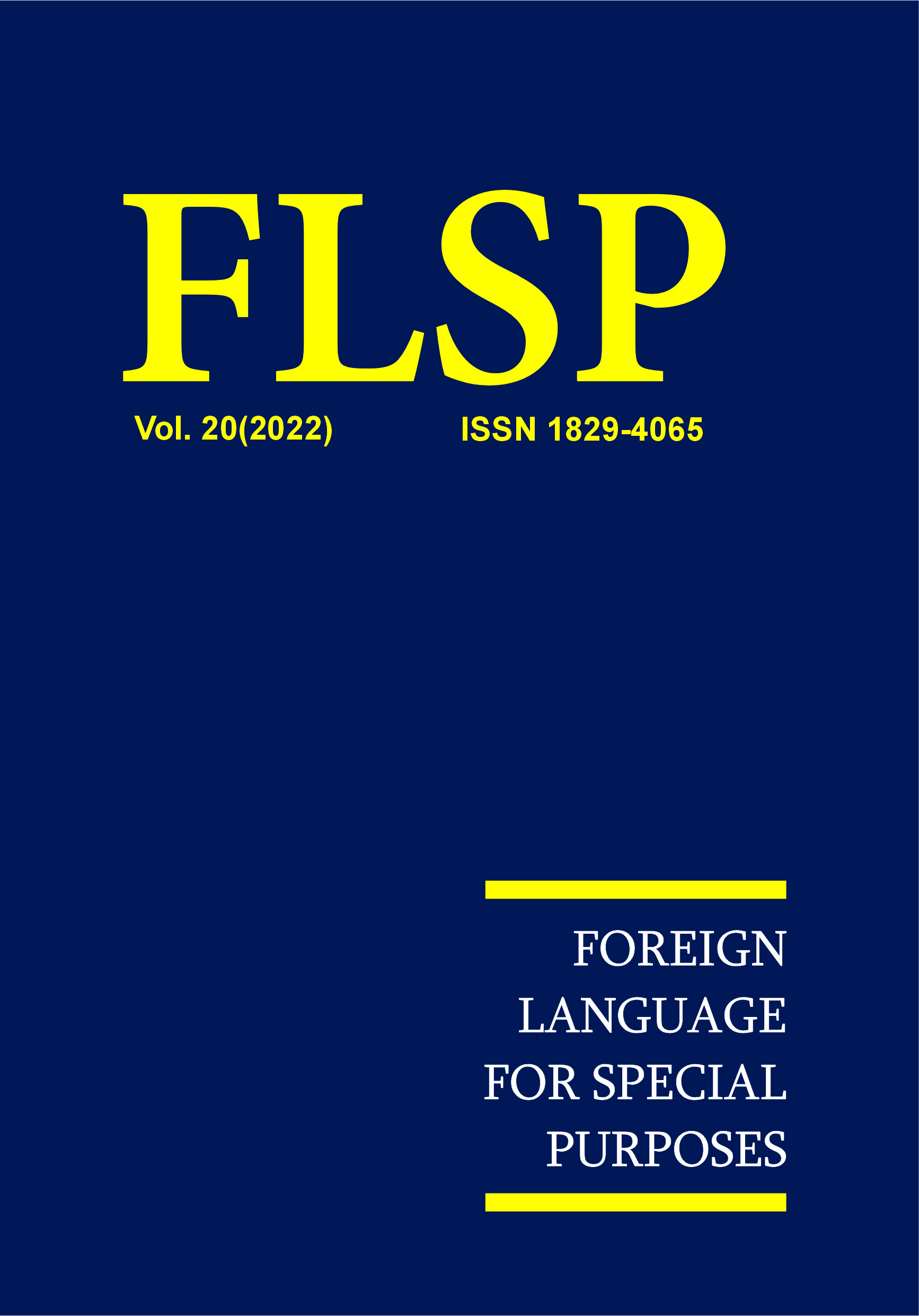TEACHING PROFESSIONAL VOCABULARY AT THE FACULTIES OF NATURAL SCIENCES
DOI:
https://doi.org/10.46991/flsp.v20i1-2.8935Keywords:
professional vocabulary, subject knowledge, international experienceAbstract
The present paper discusses a number of factors related to the teaching and mastering the professional vocabulary at the faculties of natural sciences (particularly, mathematics), both from a linguistic and psychological point of view. Due attention is paid to the selection of professionally oriented material in foreign language textbooks, which should include terms and concepts that are more common in the given field, so that every student would be able to master at least the essential part of the vocabulary related to the area of specialization and be able to continue developing language skills in the framework of the research.
References
D.Gablasova (2015), “Learning Technical Words through L1 and L2: Completeness and Accuracy of Word Meanings”, English for Specific Purposes, 39 62-74.
Michael J.Bosse’, Kwaki Adu-Gyamfi, & Meredith R.Cheetham (2015), “Assessing the Mathematical Translations: Synthesizing the Literature and Novel Findings”, International Electronic Journal of Mathematics Education, vol. 6, No.3, 113-11․
․ Arnó-Macià, E., & Mancho-Barés, G. (2015), The role of content and language in content and language integrated learning (CLIL) at university: Challenges and implications for ESP. English for Specific Purposes, 37, 63-73.
Bekteshi, E. (2017), The 'Four Cs' - Collaboration, Communication, Critical Thinking and Creativity at the Faculty of Arts (FLUP), University of Porto, Porto, Portugal. Journal of International Social Study, 10(50), 56-62.
Elvi, E. (2017), Developing task based approach teaching materials as alternative to face challenges and opportunities in multidimensional English language teaching in changing EFL context. Proceedings of the Fifth International Seminar on English Language and Teaching, 5, 43-48.
Huckin, T. and Coady, J. (1999), Incidental Vocabulary Acquisition in a Second Language. Studies in Second Language Acquisition, 21, 181-193.
Downloads
Published
Issue
Section
License
Copyright (c) 2022 Foreign Languages for Special Purposes

This work is licensed under a Creative Commons Attribution-NonCommercial 4.0 International License.
Creative Commons Attribution-Non-Commercial (CC BY-NC). CC BY-NC allows users to copy and distribute the article, provided this is not done for commercial purposes. The users may adapt – remix, transform, and build upon the material giving appropriate credit, providing a link to the license. The full details of the license are available at https://creativecommons.org/licenses/by-nc/4.0/

